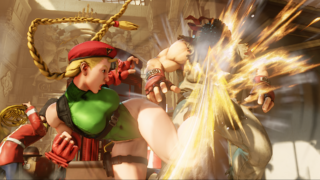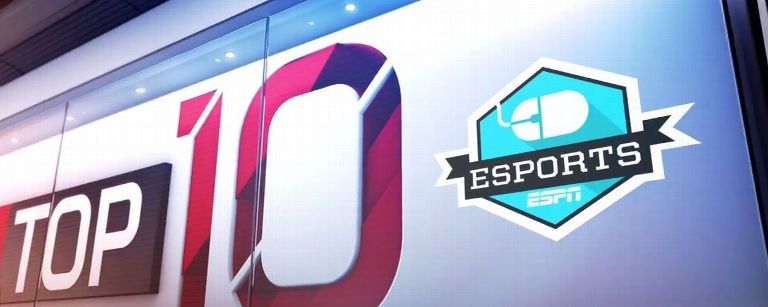The International Dota 2 Championships are underway, with a staggering prize pool of over $20 million. In 2014, Riot Games’ League of Legends World Championship had roughly 27 million streaming views, more than the average viewership of individual games of the World Series and roughly the same as the number of people who tuned in for this year’s NCAA basketball final. Awareness of the eSports phenomenon has grown significantly in the last year alone (36 percent), reaching a billion consumers in 2016.
Traditional media has taken notice of a demand for eSports content by fans and, of course, the estimated $1 billion market revenue. By featuring eSports content on television, networks not only increase their own audiences, but help ensure the success of eSports, itself.
TBS

ELeague is a professional Counter-Strike: Global Offensive (CS:GO) league that broadcasts across TBS and Twitch. The league features 24 teams from across the world to compete in two 10-week league seasons annually, which includes a regular season, playoffs and a championship tournament for $1.4 million in prize money. Premiering in May, ELeague videos were streamed on Twitch 4.3 million times from its debut on Tuesday through Friday night and attracted more than 3.4 million new viewers to TBS during its 10-week season. ELeague telecasts airing in the Friday night window throughout the first season led to TBS’ audience composition growing 97 percent in men ages 18-to-34 and 51 percent in men ages 18-to-49 when compared with the same telecast window over the previous month. The second season begins October 7.
ESPN
Sports giant ESPN, which is owned by Disney, took the plunge with a dedicated vertical earlier this year. “We did [an eSports] issue in the spring of 2015, and the response was phenomenal,” ESPN The Magazine and ESPN.com editor-in-chief Chad Millman told TIME. “And from there, we said, ‘We need to do an eSports vertical.’ So we spent the next several months thinking about how do we want to cover it, who do we want to cover it, and can we do it with credibility and authenticity so that it serves the audience appropriately. And that’s how we ended up launching the site in January.”

ESPN continued to up its eSports coverage last month when it televised the Street Fighter V World Championship on ESPN 2. In an interview with [a]listdaily John Lasker, vice president of programming and acquisitions at ESPN Digital Media, said that since mid-2014, ESPN has distributed about 300 hours of live eSports content, covering Halo, Madden, and Heroes of the Storm. “We’ve been exploring incremental TV distribution,” he said. “We appreciate and understand the existing digital distribution of eSports and where the fan base is and where they’re used to consuming this content. TV provides incremental distribution.”
BBC
For the first time, the BBC will stream highlights from an eSports competition this fall. BBC Three will collaborate with BBC Sport on a broadcast of the League of Legends World Championships in October, using the platform previously used for live sporting events and the Glastonbury festival. Live and pre-recorded video would “sit side by side” with text, audio and social-network commentary, said the channel.
CW
Earlier this January, CW partnered with Machinima for Mortal Kombat: Chasing the Cup, a docuseries that follows competitive gamers as they vie for an eSports championship. “We’re testing to see if this could be ‘sports for CW,’” Rick Haskins, executive vice president of marketing and digital programs for the CW, told Variety at the time. The third season focused on Mortal Kombat X players attempting to win the ESL Mortal Kombat X Pro League Finals.

The Future Of ESports On TV
Does this mean video games are considered a sport? The debate still remains among athletes and pundits alike. In 2014, ESPN head John Skipper said that eSports are “competitions,” not sports. Former NBA star Rick Fox, who won three championships with the Lakers, firmly believes it’s a sport. Tim Warwood, a former snowboarding champion turned commentator, also told the BBC in 2014 that eSports should stay out of the Winter X games.
“To have kids sitting there looking at computer screens indoors, alongside snowboarding and freestyle skiing and all the rest, it just doesn’t seem right,” Warwood said. “When I was a kid, sport was all about getting outside, getting wet, muddy, out of breath—you’re not going to get out of breath smashing your thumbs on a controller. I just think it’s a bit weird really—but maybe I’m just getting old.”
With the focus of the world on Rio 2016 and the Olympic Committee adding new sports like skateboarding to the Tokyo 2020 games, Dennis Fong, eSports Hall of Fame inductee and founder of Raptr, believes that eSports will inevitably become an Olympic sport.
“It’s going to happen,” Fong told [a]listdaily. “The question is just when, and how long is it going to take? Is it a legitimate sport? Curling is an Olympic sport. Why in the world should a virtual sport that fills stadiums, and has tens of millions of viewers watching the finals, not be in the Olympics? The Olympics is also about money and prestige, not just about sport. When you look at the young global fan base eSports has today, they’re going to find a way to make it happen at some point.”

